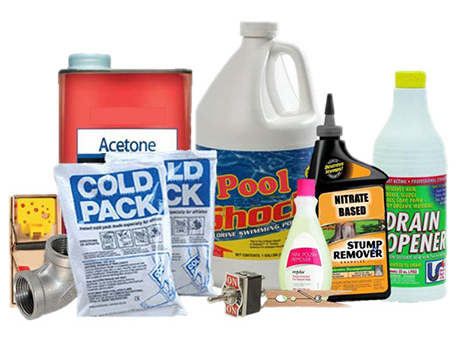
How the Public Can Keep Our Community Safe
If you see something, say something. Report suspicious behavior. Your tips could help save lives.
If you see behavior that seems suspicious and could be related to making improvised explosive devices, you can report it to www.iwatchtexas.org or call 844-643-2251. If you see an imminent threat, call 9-1-1.
Remember: Factors such as race, ethnicity, gender, national origin, religion, sexual orientation, or gender identity are not suspicious. It is important to ensure that people’s civil rights and civil liberties are not diminished by security efforts. Members of the public are encouraged to report only suspicious behavior and situations (e.g., someone breaking into a restricted area), rather than one’s appearance, to authorities.
Suspicious behaviors may include:
- Expressed or Implied Threat
- Communicating a spoken or written threat to commit a crime that could harm or kill people or damage a facility, infrastructure, or secured site.
- Observation / Surveillance: A prolonged or unusual interest in facilities, buildings, or infrastructure beyond casual or professional interest.
- Photography: Taking pictures or videos of persons, facilities, buildings, or infrastructure in a covert manner, such as photos or video of security related equipment or personnel, infrequently used access points, or structure of a building.
- Theft / Loss / Diversion: Stealing or diverting items—such as equipment, uniforms, or badges—that belong to a facility or secured site.
- Testing or Probing of Security: Challenging or testing a facility's security or IT systems to assess the strength or weakness of the target.
- Aviation Activity: Operating or interfering with the operation of an aircraft that poses a threat of harm to people and property.
- Breach / Attempted Intrusion: Unauthorized people trying to enter a restricted area or impersonating authorized personnel.
- Misrepresentation: Presenting false information or misusing documents to conceal possible illegal activity.
- Eliciting Information: Questioning personnel beyond mere curiosity about an event, facility, or operations.
- Acquisition of Expertise: Gaining skills or knowledge on a specific topic, such as facility security, military tactics, or flying an aircraft.
- Cyberattack: Disrupting or compromising an organization’s information technology systems.
- Recruiting / Financing: Funding suspicious or criminal activity or recruiting people to participate in criminal or terrorist activity.
- Sabotage / Tampering / Vandalism: Damaging or destroying part of a facility, infrastructure, or secured site.
- Materials Acquisition / Storage: Acquisition and/or storage of unusual materials such as cell phones, radio controllers, or toxic materials.
- Weapons Collection / Storage: Collection or discovery of unusual amounts of weapons including explosives, chemicals, or other destructive materials.
- Sector-Specific Incident: Actions which raise concern to specific sectors (e.g., power plant) with regard to their personnel, facilities, systems, or functions.
How Retail Businesses and Employees Can Keep the Public Safe
Retail managers and employees play an important role in keeping the community safe. Businesses can become unwitting participants in illicit or terrorist activities. Be aware of suspicious purchases or misuse of your products and services.
The best thing you can do to protect your community is to practice RACK: Recognize, Ask, Check, Know.
- Recognize products within your inventory that could be used to make bombs.
- Ask for customer I.D. and note suspicious purchases.
- Check your inventory and report missing or stolen products.
- Know your customers and report suspicious purchases or behaviors.
RACK is a helpful way to learn which items in your store can be used to make homemade explosives, recognize behaviors that may indicate intent for unlawful use, and report suspicious activity.

Retail Product Awareness
Know your customers. Be aware. Your effort makes a difference.
The following products are commonly used as bomb-making materials. Industry members should familiarize themselves with these behaviors that may indicate intent for unlawful use and report suspicious activity.
Hardware, Beauty & Pool Supply
Products that may be used for improvised explosives include:
- Pool cleaner
- Nail polish remover
- Instant cold packs
- Hydrogen peroxide
- Hardware
- Drain opener
- Acetone
- Stump remover
- Urea
Potentially Suspicious Customer Activity:
- Insisting on paying cash or using another person's credit card
- Acting nervous, being evasive, or hiding from security cameras
- Making large and/or multiple purchases within a short period of time
- Asking questions that do not seem relevant to the lawful use of these products
- Making statements regarding illegal or misuse of explosives
- Expressing interest in bomb-making or engaging in violent activity
- Displaying injuries consistent with experimentation with explosives such as scarring, discoloration, or burns on the skin
What Retailers Can Do:
Follow these simple steps:
- Ask questions, listen to their responses, and observe their behavior
- Know your customers and report suspicious activity
- Ask for customer I.D. and maintain a log of unusual purchases
- Keep track of inventory and report missing or stolen products
- Remember to follow your company’s corporate structure for reporting anything that may be suspicious.
- Notify law enforcement of suspicious activities:
- Report suspicious purchases or behavior via www.iwatchtexas.org
- Emergencies or imminent threats should be reported by calling 9-1-1.
Education and Training Available for Retailers and Law Enforcement:
Our outreach experts are available to train law enforcement agencies, business managers and staff anywhere in the Central Texas area. To schedule an outreach training with our BMAP experts please email hsemcommunications@austintexas.gov.
Our outreach team may also contact your organization to schedule a visit. Our goal is to educate law enforcement agencies and businesses about the Bomb-Making Materials Awareness Program so we can work together to keep our community safe.
Federal BMAP Resources
More resources on bomb-making awareness are available from the federal government. Watch below or learn more at the Cybersecurity and Infrastructure Security Agency (CISA) webpage.


